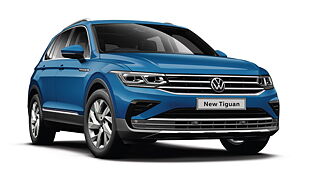Introduction

Earlier this year, our resident German car fan, Venkat, spent some time with the refreshed Volkswagen Vento. And although the VW managed to impress him with its quick shifting 7-speed DSG and good quality all round, there is no getting away from the fact that it’s got some serious competition in the buzzing C-segment sedan market.
There are simply too many strong products in the C-segment (Read: Honda City, Hyundai Verna, Maruti Ciaz) that the Vento is having trouble finding buyers. Besides its corporate cousin, the Skoda Rapid, the only cars the VW outsells are the Nissan Sunny and the Fiat Linea.
Is Volkswagen really that ham-fisted to not be able to sell a product as good as the Vento in big numbers? Or has the market simply forgotten about it? Regardless of the circumstances, it is clear that Volkswagen is going to great lengths to make the Vento a better product than before. How else would one explain the arrival of this 2015 model which comes in barely seven months after the launch of the refreshed Vento?
Exterior

If Hyundai is this fashionable fellow who likes to announce his arrival in a class, Volkswagen is probably the quiet kid who leaves a long-lasting impression while keeping things low. All VWs, then, are discreetly styled and the 2015 Vento is no different.
On the outside, not much has been changed in terms of the layout of body panels. The 2015 Vento continues to exude typical Volkswagen design cues with its neatly designed front/rear end, taut shoulder lines and a compact profile. However, Volkswagen hasn’t left the exterior untouched.

There are quite a few subtle updates in the design that cleverly differentiate the 2015 model from the past. For instance, the reprofiled bonnet with deeper creases and new front grille with triple chrome slats highlight the 2015 look. There’s also a new front airdam and front fog lamps with integrated cornering lights. Move onto the rear and you will notice the old layout of the taillights albeit with revised internals, a thin chrome strip on the boot lid and a restyled rear bumper with chrome inserts and reflectors.
So how big of an impact these subtle revisions will make in enhancing the street cred of the Vento? Quite big, if you ask me.
Given that mid-life makeovers are not always good news and that facelifted models often end up looking shoddier than the cars they replace; Volkswagen has done a good job of rejuvenating the Vento for 2015. Like the old car, what works in favour of the Vento is the well-balanced nature of the design. Right from the sharp lines all around to a neatly integrated boot, the Vento appears well-proportioned and not just a booted sibling of the Polo.

Interior

Inside, the cabin boasts a good mix of quality materials and comfortable seating for up to five occupants. While the design of the interior remains the same as before, Volkswagen has introduced new colour themes and updated the equipment list according to the trim level.
If I’m to draw comparisons with the Hyundai Verna or the Fiat Linea, the Vento’s cabin does look a bit dull, but when it comes to quality and fit and finish of plastics, the VW is hard to match. Except for a few hard plastics, all the controls operate in a taut and precise manner and even the new ‘Walnut desert beige’ colour theme, as seen in our test car, is well finished. Further adding appeal to the cabin is the overall comfort level. While both the front seats and the rear bench are comfortable, the rear falls short of legroom and unless Volkswagen decides to make drastic changes to the architecture of the next-gen model, the rear legroom in the Vento can be labelled mediocre at best.

For 2015, the Vento gets cruise control, cooled glove box and a dead pedal as all-new equipment. Standard features, meanwhile, include climate control, rear parking sensors, electrically adjustable rear view mirrors, ABS, twin airbags and a rather good sounding audio system with Bluetooth connectivity. The cabin is extra functional especially for rear seat occupants, thanks to the rear AC vents and the conveniently placed lever behind the front passenger seat for that additional bit of legroom.

Engine and Gearbox

Behind the Vento’s new triple slate chrome grille is a 1.5-litre four-cylinder diesel engine that produces 103bhp of power @4400rpm and 250Nm of torque @1550rpm. Known for its punchy performance, this TDI unit makes peak power at 2,000rpm and redlines at nearly 6,000rpm.
The power output, as you may have guessed, remains the same as before although Volkswagen says it has improved the fuel efficiency of the Vento by up to 7.5 per cent.
With 100-odd bhp and 250Nm, the Vento doesn’t feel like overkill; however, it is no slouch either. Put your foot down and the engine releases a rush of low-end torque right when you want it for blasting across the city streets. Out on the highway, the strong pull is evident even when doing over triple digit speeds.
The car’s highlight, without a shadow of a doubt, is the DSG automatic gearbox. Offered initially in the Polo GT TSI, this 7-speed dual clutch unit is always up for the job; be it a gentle cruise across the town or a quick hoon around your favourite set of roads. In ‘D’ mode, the DSG does a convincing job of shifting up smoothly and early in the rev band to squeeze out maximum fuel efficiency. But, the moment you move the chunky, chrome-finished lever down to ‘S’, the entire character of the dual-clutch unit changes and by now the engine is screaming for all its worth right before every upshift. Speaking of which, the TDI unit in the Vento isn’t the most refined engine in its class as there is a noticeable amount of drone especially at lower revs.
The blend of a punchy diesel motor and a quick shifting gearbox makes the Vento diesel quite fun to drive. However, those seeking more power would find the more powerful Verna to be a boon for daily drives although I cannot help but agree with the fact that the 4-speed unit in the Hyundai feels Jurassic in the current age and is nowhere as fast or smooth as the 7-speed DSG seen here.

Ride and Handling

Don’t let the sporty looking flat-bottom steering wheel fool you. The Vento is a C-segment sedan, after all, and it handles exactly like it’s supposed to. Like most other cars in its segment, the Vento’s suspension set up has been oriented towards comfort, however, it still feels fairly planted and the steering weighs up decently as you up the pace. While it’s no corner carver, the Vento tackles slow and medium speed corners without breaking a sweat and it’s only during high speeds where it requires serious steering inputs from the driver.
As for the ride quality, the Vento is on par with cars like the Honda City and the Hyundai Verna. While the Nissan Sunny does a slightly better job of traversing through bumps and potholes, it’s the Fiat Linea which continues to hold on to the crown for the optimum ride and handling balance.
Verdict

Though it’s hardly a disappointment, Volkswagen has not reinvented the C-segment sedan with the 2015 Vento. What the brand has done is taken a genuinely good car with a brilliant gearbox and made it better suited for a wider set of audience.
With more equipment as standard and better real world fuel efficiency, Volkswagen has bettered two of the most significant aspects of any new car sold in car. As for the third most influential factor i.e. looks, the Vento remains as modest as ever. In a sea of excessive cuts and creases, a clean design and a subtle road presence do well to underline the Vento’s inconspicuous character.

![Volkswagen Vento [2015-2019] Image Volkswagen Vento [2015-2019] Image](https://imgd.aeplcdn.com/272x153/cw/ec/26563/Volkswagen-Vento-Exterior-168556.jpg?wm=0&q=80)
























